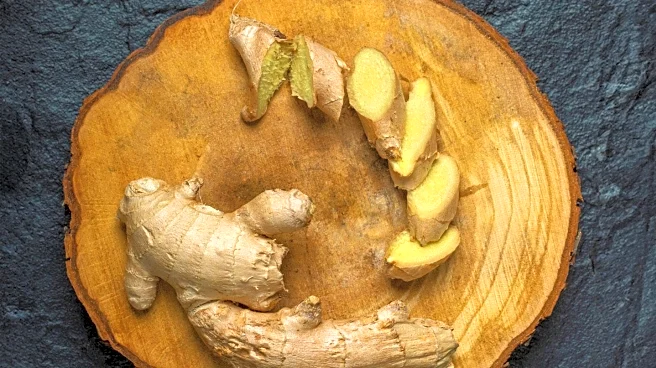What is the story about?
What's Happening?
Recent research has revealed that Neanderthals had a more varied diet than previously thought, challenging the traditional view of them as primarily meat-eaters. Studies, including a significant one published in Nature in 2017, have shown that Neanderthals consumed a wide range of foods, including starchy plants, legumes, fungi, and shellfish. This dietary diversity was largely influenced by their geographical location and the available resources. For instance, Neanderthals in northern regions like Belgium consumed a diet rich in animal protein, while those in southern Europe, such as at Spain's El Sidrón cave, had a diet that was predominantly vegetarian. Coastal Neanderthals also included seafood in their diet, as evidenced by findings at Gruta da Figueira Brava in Portugal. These discoveries suggest that Neanderthals were adaptable and capable of nutritional flexibility, adjusting their diets based on environmental conditions.
Why It's Important?
The findings about Neanderthal diets have significant implications for our understanding of human evolution and dietary practices. They challenge the modern 'paleo diet' trend, which often emphasizes a high intake of lean meats and raw vegetables while excluding grains and dairy. The evidence that Neanderthals consumed a variety of foods, including starchy plants and cooked shellfish, suggests that the idea of a single 'natural' human diet is misleading. This research highlights the adaptability and resourcefulness of Neanderthals, who were able to thrive in diverse environments by utilizing available resources. It also suggests that early humans were not strictly carnivorous but were dietary opportunists, capable of adjusting their eating habits to suit their surroundings.
What's Next?
Further research into Neanderthal diets could provide more insights into their lifestyle and survival strategies. Scientists may continue to explore the role of environmental factors in shaping their dietary habits and how these practices compare to those of early Homo sapiens. Additionally, the study of Neanderthal dental plaque and other archaeological evidence could reveal more about their use of medicinal plants and natural remedies, offering a deeper understanding of their knowledge and cultural practices. These findings could also influence modern dietary recommendations and challenge current perceptions of 'natural' diets.
Beyond the Headlines
The research into Neanderthal diets also raises questions about their cultural and social practices. The evidence of cannibalism at some sites suggests complex social behaviors that may have included ritualistic or survival elements. This challenges the outdated view of Neanderthals as primitive and instinct-driven, instead portraying them as capable of symbolic actions and diverse survival strategies. Understanding these aspects of Neanderthal life could provide valuable insights into the evolution of human culture and social structures.














